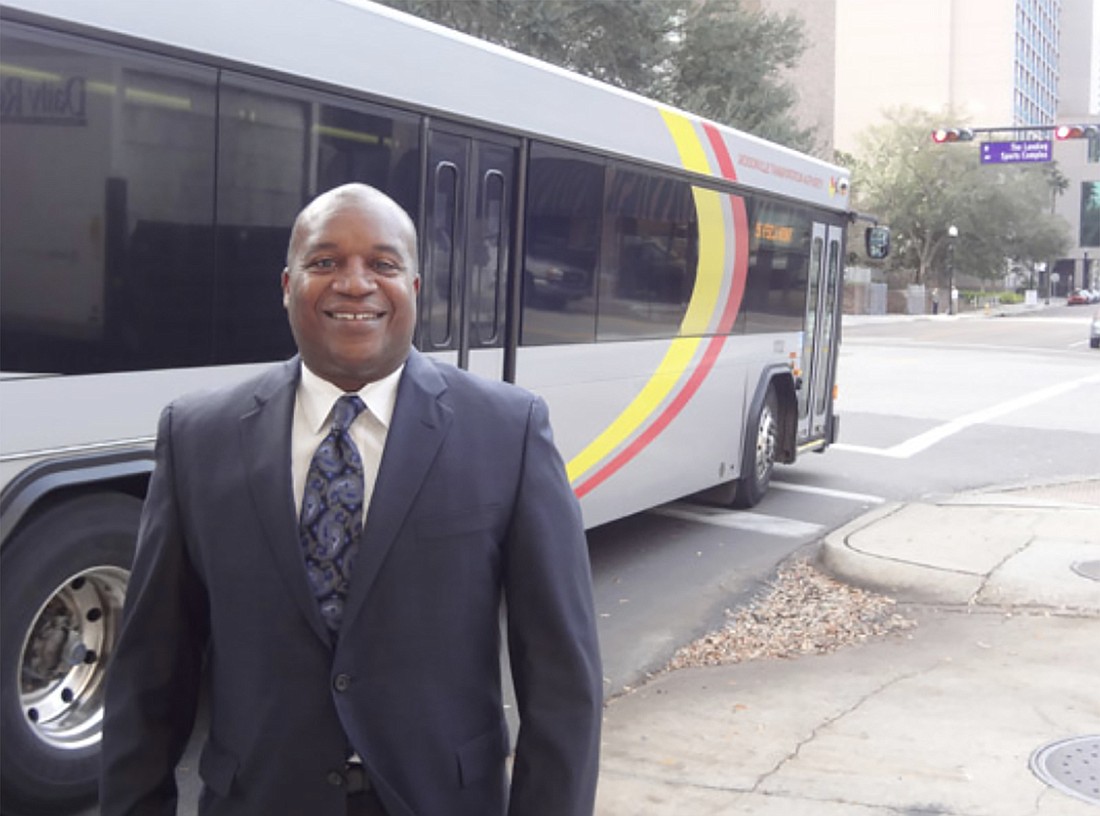
The $8.25 billion increase in the U.S. Department of Transportation budget this year will benefit local efforts, according to Jacksonville Transportation Authority CEO Nathaniel Ford.
The additional money is included in a $13 trillion appropriations bill signed into law March 23 by President Donald Trump.
Ford said he’s specifically thankful for the $1 billion increase to the Federal Transit Authority, which now operates a $13.5 billion budget, and a $232 million boost for the now $2.64 billion FTA Capital Investment Grant program.
“This is very important to JTA,” Ford said.
“If the CIG receives this level of investment once again next year, we will be in a great position to receive full funding for the First Coast Flyer BRT Southwest Corridor,” he said, referring to the last segment of the five-phase bus rapid transit system.
JTA received $16.9 million in March from the Capital Investment Grant program to begin construction on a fourth phase of the First Coast Flyer.
The East Corridor will transport riders to and from the Beaches and Downtown via the Arlington Expressway, Southside Boulevard and Beach Boulevard. The route is expected to open by December.
The final phase is the Southwest Corridor, which will provide service from the Prime F. Osborn III Convention Center south along Blanding Boulevard, past the Interstate 295 West Beltway to the Orange Park Mall.
Ford attended the American Public Transportation Association’s annual legislative conference in March in Washington, D.C., shortly before the president signed the appropriations act.
Ford was elected chair of the association in October. The group lobbies Congress, the White House and other federal government agencies on public transportation related-issues, including funding.
During the conference, Ford said he met with several lawmakers and officials, including K. Jane Williams, acting Federal Transist Authority administrator. Ford said Williams has “proven to be a passionate advocate for public transit and is receptive to our needs.”
Ford’s connections in Washington also could come in handy as the JTA continues to develop its “Ultimate Urban Circulator,” or U2C autonomous vehicle initiative.
He said federal agencies and the Trump administration seem poised to support the emerging technology.
“The administration has spoken on funding transformative projects that will provide cutting-edge infrastructure and services,” he said.
“For example, the president’s infrastructure plan recommends $20 billion for ‘game-changing’ innovative projects,” Ford said.
Ford said the DOT, FTA and the Federal Highway Administration are discussing how to deploy autonomous vehicles safely. He envisions JTA’s program creating a template for the industry.
“The key for us is to demonstrate that we are best positioned to do that and our work so far on the U2C, especially the development of the technology ‘road map,’ sets us apart,” he said.